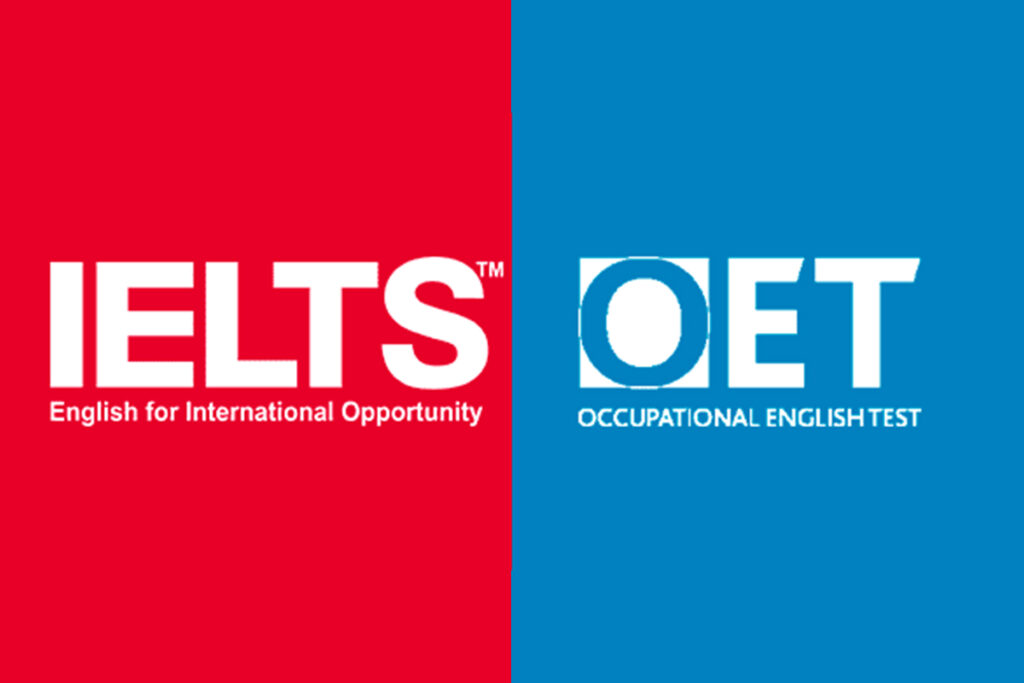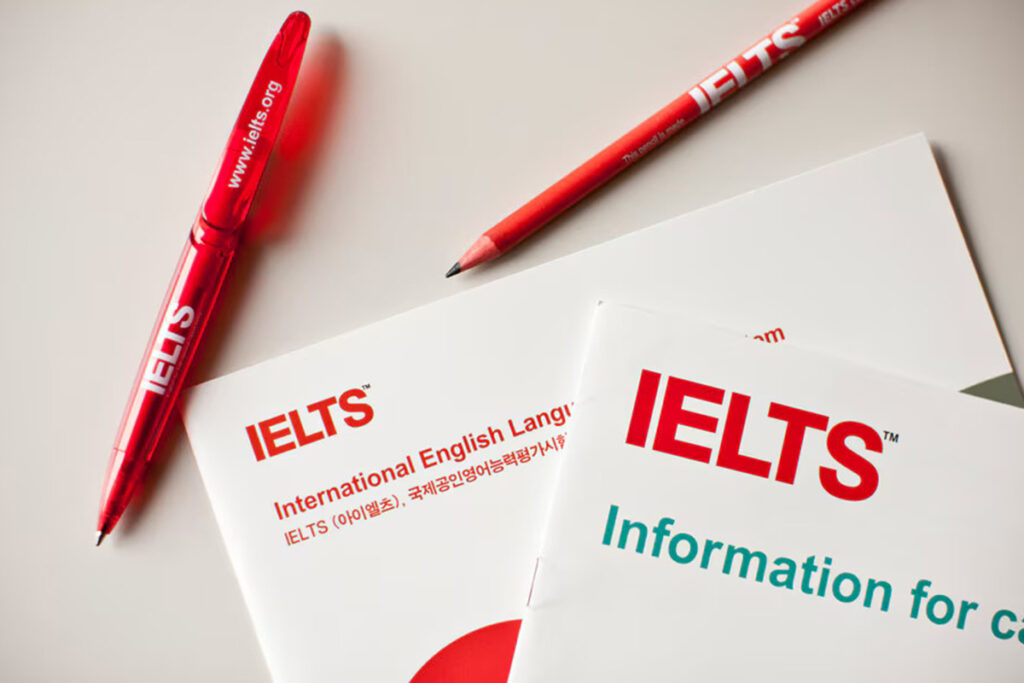
When choosing between OET vs IELTS, your career goals play a crucial role. OET is tailored for healthcare professionals, ensuring they have the language skills needed for medical settings. In contrast, IELTS is widely accepted for various academic and professional purposes, making it suitable for individuals seeking opportunities beyond the healthcare sector.
A key requirement for studying abroad is proving English language proficiency. Many candidates struggle to decide between OET vs IELTS, as both assess language skills but serve different purposes. While OET is specifically designed for healthcare professionals, IELTS is a more general test used for education, migration, and work. Students often wonder which exam is easier and better suited for their goals. In this blog, we will break down the key differences between OET and IELTS, helping you determine which exam best suits your career and education goals.

IELTS (International English Language Testing System) is a globally recognized English proficiency exam for individuals planning to study, work, or migrate to English-speaking countries such as the UK, USA, Canada, Australia, and New Zealand. It assesses candidates on four key language skills: Reading, Listening, Writing, and Speaking. The IELTS exam is jointly administered by IDP Education Australia, the British Council, and Cambridge English Language Assessment. It serves as a crucial requirement for university admissions, job applications, and visa approvals in various parts of the world.

The Occupational English Test (OET) is a specialized English language proficiency exam designed specifically for healthcare professionals. Conducted by Cambridge Boxhill Language Assessment (CBLA), the OET exam is accepted in the UK, Ireland, Australia, New Zealand, Ukraine, Dubai, and other English-speaking countries for healthcare employment and education purposes. OET focuses on medical and healthcare-related communication skills. The test assesses Listening, Reading, Writing, and Speaking, with all tasks centerd around real-life healthcare scenarios. Many hospitals, universities, and healthcare institutions recognize OET scores as proof of a candidate’s ability to communicate effectively in a professional medical environment. The OET exam is tailored for 12 healthcare professions including Medicine, Nursing, Pharmacy, Occupational Therapy, Radiography, Veterinary Science, Speech Pathology, Physiotherapy, Dietetics, Podiatry and Optometry

Both OET and IELTS assess English language proficiency, but they serve different purposes. Understanding their differences can help candidates choose the right test based on their career or education goals.
1. Purpose and Recognition
2.Test Format and Content
3. Scoring System
4. Difficulty Level
5. Exam Fees
6. Exam Validity
7. Exam Test Dates
8.Availability of Results:

When comparing OET vs IELTS, many candidates wonder which test is easier. The truth is that both OET and IELTS assess English proficiency, and if a candidate’s English level is not up to the required standard, passing either test will be challenging. Simply put, the difficulty of the exam depends on the individual’s proficiency in English rather than the test itself.
However, many test-takers find OET easier because it is specifically designed for healthcare professionals. Since OET focuses on medical terminology and real-life healthcare scenarios, candidates can leverage their industry knowledge, vocabulary, and professional experience. In contrast, IELTS is a more general test that covers a wide range of topics from different fields, making it less specialized for healthcare professionals.
Ultimately, whether OET or IELTS is the better choice depends on the candidate’s background and career goals. Healthcare professionals may find OET more relevant, while those seeking opportunities outside the medical field might prefer IELTS .To read more about IELTS and OET Click here.
Salmiya : REG IMMIGRATION AND EDUCATION
2nd Floor, Building No.44, Yusuf, Yousef Al Bader St, Salmiya.
Jaleeb Al Shuyoukh :
Building No. 146
Floor 2, Street 6,
Block 4, Near Subway,
Jaleeb Al-Shuyoukh
Mangaf : 1st floor Building number 90
Street number 25
Mangaf block 4
Near Green Asia supermarket
Copyright © 2025 REG EDUCATION AND IMMIGRATION. All rights reserved. Powered by Zeekoi Enterprise Solutions